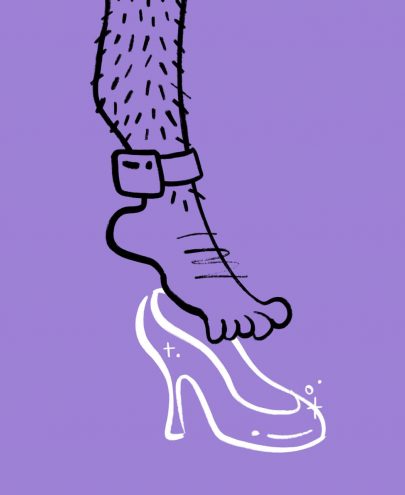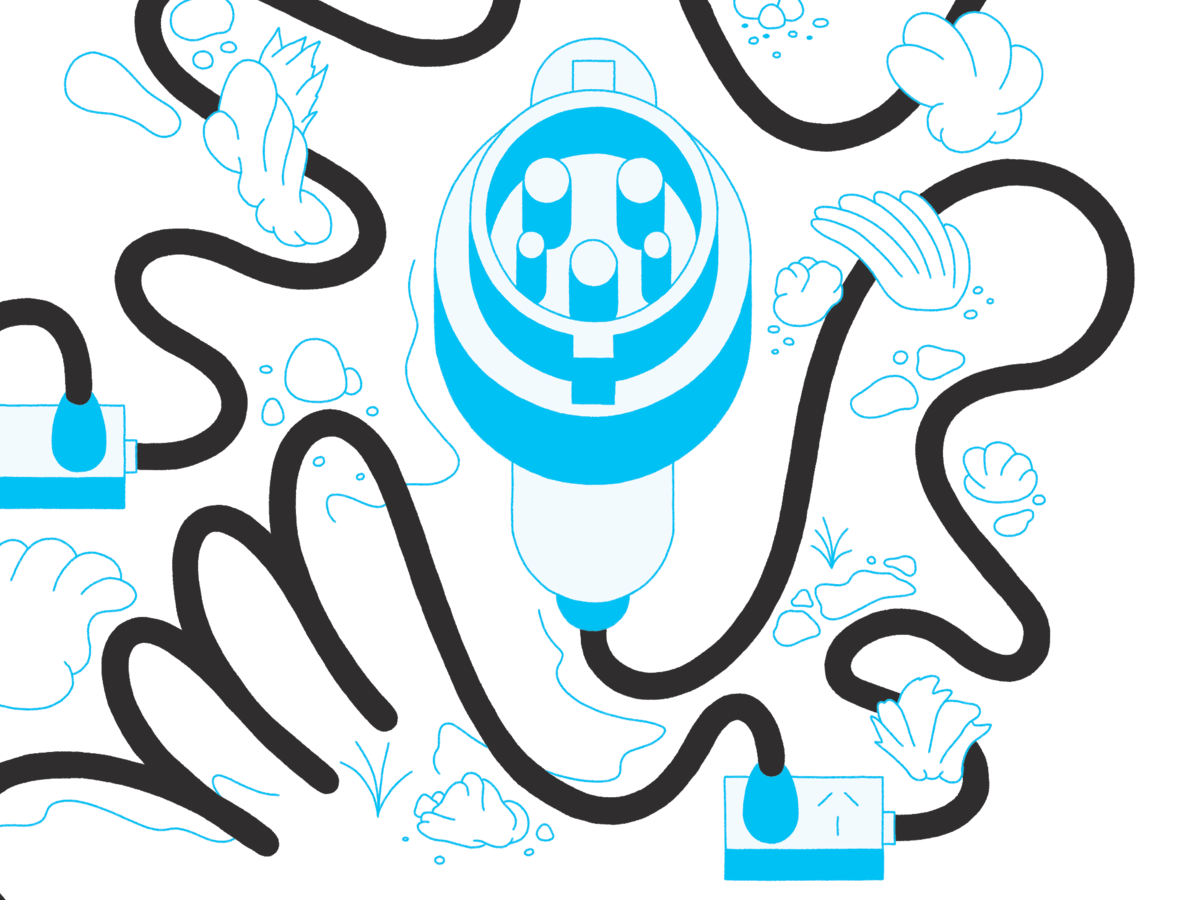Apr 10, 2015 etc
A couple of years ago I rang up John Campbell and asked him to come out with me at dawn for a photo shoot. He said, “Yes, of course.” I don’t think he quite managed to add, “I’d love to,” but he was prepared, without any grumbling, to do it. As most people surely know, he’s like that.
It was the day of the Auckland Marathon and we were putting together our Best of Auckland issue. I wanted a twin-concept shot: the marathon was one of the “best things about Auckland” and John was another. He was our Aucklander of the Year, in fact, in the wake of his advocacy journalism for Christchurch earthquake survivors, low-decile kids and so much more.
We caught the ferry to Devonport, he in his suit and tie and polished shoes, with everyone else on the boat dressed in their running gear. They loved him on that boat. They glowed from their proximity to his approachable, cheery, engaging celebrity self, and took turns to make jokes about the suitability of his running gear.
Who else on television – anywhere on television – is admired and liked and loved in that way? Who else can point to a record of advocacy like his? Paul Holmes was the last, it used to be said, but actually John Campbell is the last. Mike Hosking and Paul Henry? The comparisons are laughable. No one likes Hosking and he doesn’t like anyone. Many people do love Paul Henry, but just as many really, really don’t. As for either of them doing advocacy journalism – the kind of thing Holmes placed at the heart of his show and Campbell has always had at the heart of his – it wouldn’t occur to them. Why stand for something when it’s easier to sneer?
As a mark of how unique Campbell is, think about Rachel Smalley’s really good work on the Pacific and on Afghanistan and the Middle East. By which I mean, her feature writing in the Herald. No way has Rachel, a terrific broadcast journalist, been allowed substantial access to television with that stuff.
Alas for John, uniqueness is also isolation. John and his dedicated Campbell Live team are out on their own.
And now, it seems, he is to be taken from us, through some diabolically motivated mashup of trash TV and right-wing sabotage, all wrapped up in the person of the Rasputinish Julie Christie and her czar, TV3 CEO Mark Weldon.
Hmm. It’s quite fun to blame Julie Christie for the threat to Campbell Live, and god knows the evidence isn’t hard to find. TV3 has already trashed most of its prime time and now it’s gearing up to destroy one of the few quality shows it has left. Thank goodness we have a state-owned alternative to show us it doesn’t have to be this way. No, wait.
There’s an absurd, awful irony in all this. We wallow in a muddy swamp of bad TV even though all around us are bright shining peaks of quality. TV – the good stuff – has never been better. In fact, there’s so much good TV, who can even keep up? Of course, you can’t watch it on TV3 or TVNZ. You have to pay for it, assuming you don’t already steal it.
So with the audience for good television fleeing to ever-wider choices of pay TV, the free-to-air channels now cater for those who either can’t or don’t want to watch those programmes in that way. And guess what? The remaining good free-to-air shows, on the whole, don’t rate.
We (“we” being the people who watch free-to-air television at all) don’t watch them. This is a simple fact, and it’s no good bleating about the tyranny of ratings, or the lack of better measures of viewership. Campbell Live is in a precarious state because far too many of the people who value it in the abstract do not actually value it in their lives. They don’t watch it.
Maybe it can get its audience back. But it’s a rock and a hard place when one option means becoming a bit trashier, alienating those who want quality, and the other means sticking with quality even though the people who value that don’t watch anyway.
I know about this, because it’s the same pressure we face at the quality end of print media. (Just going to eschew modesty for a moment and say that.) What’s true for us at Metro is also true for our colleagues at the Listener and North & South, and for the many people who write for and run the Herald and want to be proud of what they do, and often should be. We all search for ways to keep our work good and relevant, when we know our audiences are seriously distracted by the best versions of everything the media can offer, from anywhere in the world.
That’s the reality of a world full of tablets and smartphones. Whatever you, our potential audience, like, however you want to get your intellectual stimulation, your entertainment, your connectedness to the people who like what you do – however you get your jollies – you can find it all, easily, quite possibly for free or cheaply, from anywhere in the world, on that thing you’re holding in your hand.
That’s the reality we in the media here confront every day. That’s what we compete with.
It’s tough. And it’s also doable. Metro has an operating surplus and in print media we are not alone. And the great challenge is exciting: we have to reinvent how we make it all work.
But if you’re running Campbell Live, there’s a pressure we don’t face here. The question you face is: how do we ensure 7pm has the biggest (non-news) viewing numbers of the night? Because if that happens, we can deliver a strong audience for the rest of the evening. And if it doesn’t, we will jeopardise the entire network’s ability to spend money on quality.
The problem for Campbell Live, for all quality free-to-air TV, runs very deep. It’s not just that pay TV is a goldmine. It’s also the case that we live at a time when access to news, commentary and pictures about important (and fascinating) events has never been greater, so the raw material for a good magazine current affairs TV show should be greater too. But television hasn’t worked out yet how to use that to good advantage.
We have direct, fast, unfiltered, democratic creation of news, commentary and entertainment. All the time. How does a nightly show trump that, and remain proud of what it does? TV3 doesn’t know. Campbell Live doesn’t know. TVNZ certainly doesn’t know. None of us do.
If we lose Campbell Live we will lose a good magazine programme at 7pm, one that mixes current affairs with entertaining slices of local life. Would that be the worst that could happen? It would be a big loss of cultural value. But most other countries have already lost it – and the very worst example of it is the UK. All those reality freakshows we now see littering prime time here? Most of them come from Britain.
The failure of Campbell Live to hold and build an audience is not Julie Christie’s fault. But what almost certainly can be laid at her door, and that of Mark Weldon, is this: they show no sign of wanting to axe Campbell Live in order to reinvent the possibilities of the 7pm slot in any kind of culturally valuable way. On the contrary, they give every impression of simply wanting to further trash the network.
I don’t admire everything Campbell Live has done. The show has been susceptible to populist tub-thumping, just like every other magazine show in that 7pm slot. Haranguing the police for trying to enforce the speed limit is just one recent example. But so what? It would be anodyne entertainment if no one took offence at anything they did.
Is it just that nice guys finish last? Not really. John has carried a candle for 10 years now on his show. He stands for enthusiasm where it’s warranted, for critical thinking where it’s due, for the marginalised and also for the talented, for everyone who gets knocked down and everyone who gets back up again. He’s a man who models kindness, and curiosity, and a moral code that can distinguish right from wrong, and intelligence. He is, as I said before, unique.
The question isn’t really whether Campbell Live should stay. If the ratings have fallen too low, something has to be done. But most of the reasons for the fall probably have very little to do with John himself. The question is: how do we (because it is “we”, with the collective responsibility for a culture we like to think we are proud of, and want to make better) make best use of one of our finest?
Because that’s what John Campbell is. A cultural treasure. And TV3, like all major media organisations, is an important guardian of our culture. What’s the best thing he could be doing?
Are we going to aim high, or just give in?





